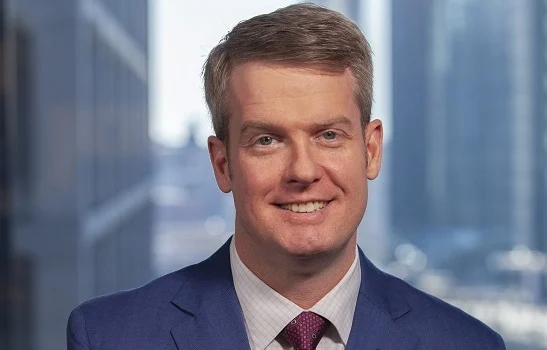ANALYSIS: Artificial Intelligence will take and create jobs - expert
2nd April, 2025|Luke Jeffs

Artificial intelligence will make jobs redundant but it will also create new ones, according to an AI expert who suggested energy supply could ultimately limit the scope of the technology.
Dr. Alan Richards, an executive mentor and artificial intelligence expert, told a webinar hosted by London-based financial services training firm ZISHI the advent of AI poses both opportunities and challenges for financial firms.
Discussing the issues on the webinar with ZISHI chief operating officer Jeff Hearn, Dr. Richards said: “All we hear about is that AI is going to take jobs and it is, there’s no two ways about it. But if we look at the other Big Bang moments like the internet, what we didn’t talk about was the fact that it was also going to create a whole host of jobs.”
While AI will change how people are deployed in financial services firms, Dr. Richards argues the technology is unlikely to change fundamentally the industry itself.
“We live globally in a society that is completely reliant on the flow of money. You earn money, you store that money and you spend that money on the goods and services you want. If we break that cycle, we don’t have a replacement for it.”
He added: “Human beings generally need to add value, they need to do something of worth so I don’t think AI is going to be the end. Rather, I think what we are going to do is throttle it back and forth to make sure it is delivering what we want in general.”
Dr. Richards sees energy supply also playing an interesting role here.
“The big thing that is going to restrict us is that AI is energy hungry. We are a long way off perfecting fission, if we ever perfect fission, so we are going to run out of the ability to use energy long before we run out of the capability of using AI.”
The use of AI through apps like ChatGBT alone has increased exponentially in the last year and this is already highlighting the issue of energy supply.
Dr. Richards said: “I think we are going to see entire industries both legitimate and illicit that will spring up around AI but we are going to run out of energy. Solar, wind, everything that we currently have are not going to bridge that gap.”
China’s Deepseek roiled in January the various US tech stocks working on AI because it claimed to have developed a technology that runs at a lower cost and, crucially, with lighter energy requirements than its more established US rivals.
Dr. Richards said cryptocurrencies are becoming more popular under the new US regime but the largest investors still need reassurance: “We’ve seen Donald Trump and Elon Musk play in cryptocurrencies but, as we know, it’s such a volatile way to deal with money that for large companies the appetite is still not there.”
CME Group, the US group, is the world’s largest cleared bitcoin futures market after becoming one of the first to launch a cryptocurrency future in late 2017.
The US exchange traded in January and February this year 65,325 lots of its main bitcoin futures contract which was up 42% on the same two months last year, according to FOW Data.
CME traded in the last quarter of last year 106,580 lots of its bitcoin future, which was up two thirds on the same period in 2023, according to FOW Data.
Dr. Richards is also tracking advances in central bank digital currencies: “What we are seeing however is central banks start to shift how they approach money altogether. So, are we at the Big Bang moment? I think we might be, and that is going to change how we lead and engage with companies.”
Turner said: “In financial services, we are used to the regulator saying do this but don’t do that but we have this vacuum at the moment where people are saying should I or shouldn’t I do it?”
To watch the ZISHI webinar featuring Dr. Alan Richards, please click here.
To watch the ZISHI webinar featuring Sue Turner OBE, please click here.


